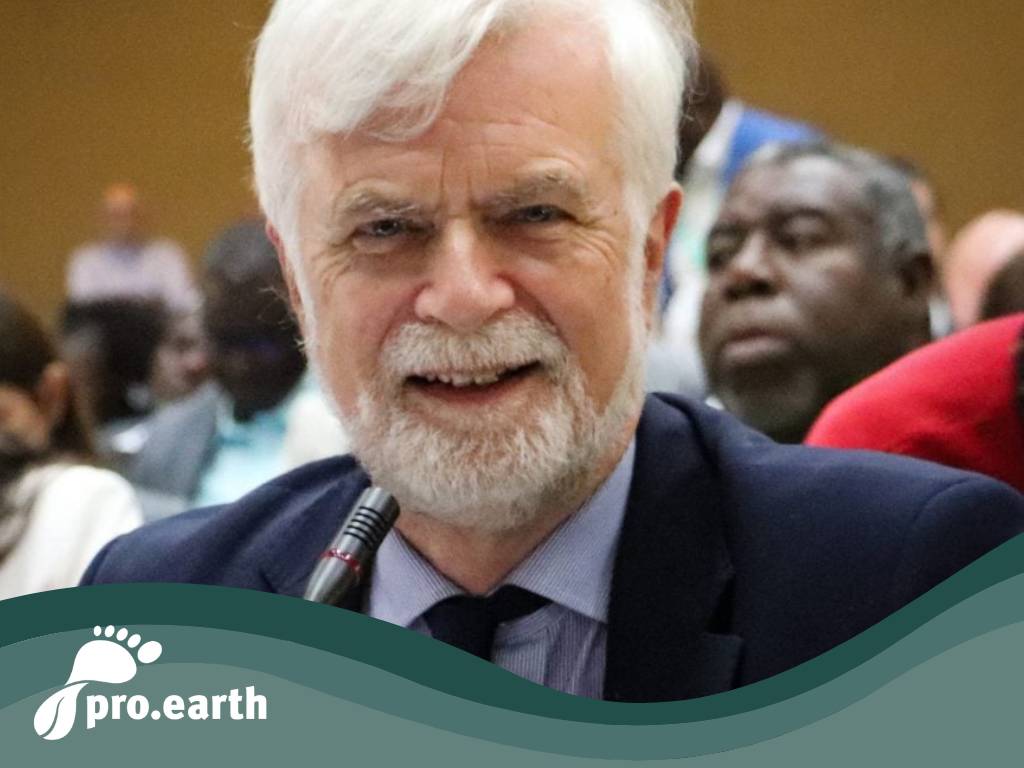New chairman of the Intergovernmental Panel on Climate Change elected

On July 26, the Intergovernmental Panel on Climate Change (IPCC) elected a new head. For the first time, two female candidates were up for election. Jim Skea, the British professor of sustainable energy at Imperial College in London and author of a recently published report on solutions to the climate crisis, prevailed and now replaces the South Korean economist Hoesung Lee at the head of the IPCC.
The election of the new leadership marks the start of the seventh assessment cycle of the Intergovernmental Panel on Climate Change, which will last five to seven years. During this period, many scientists will - as in the past - work through new studies on climate change and summarize their findings in several assessment reports. In these reports, they will show governments the consequences of various actions or inaction.
Climate change faster than expected
The sixth Synthesis Assessment Report was published in March this year and concluded that climate change is progressing faster than previously thought. "The pace and scale of action to date and current plans are inadequate to combat climate change," the scientists agreed.
https://news.pro.earth/2023/03/21/ueberlebensleitfaden-fuer-die-menschheit/
"The challenges are huge, but the most important thing is not to let a feeling of despair lead to inaction," said Skea after his election.
"Climate change is an existential threat to our planet," he continued. "My goal is to lead an IPCC that is truly representative and inclusive, an IPCC that looks to the future while seizing the opportunities we have in the present. An IPCC where everyone feels valued and heard."
The new IPCC Chair then explains his approach: "I will pursue three priorities - improving inclusion and diversity, maintaining the scientific integrity and policy relevance of the IPCC assessment reports, and making effective use of the best available science on climate change. My actions as Chair of the IPCC will ensure that these goals are realized."
Without measures, it will get much worse
Skea advocated focusing less on the 1.5 degree target, which, according to the IPCC's 6th Assessment Report, is no longer achievable due to a lack of action: "I think we have become a little too fixated on these iconic targets like 1.5 degrees."
The message of the latest IPCC synthesis report from March this year is clear: "No matter where we are, the benefits of doing something about CO2 emissions far outweigh the costs associated with reducing CO2," said Skea. "It still pays to do something, unless you want it to get worse than it is now." Skea made it clear that he is "genetically optimistic" and convinced that humans still have the power over the future course of warming.
"WMO welcomes the election"
"The WMO welcomes the election of Jim Skea as Chair of the Intergovernmental Panel on Climate Change at such a critical time. The extreme heat waves, unprecedented sea surface temperatures and rapid changes in the cryosphere show that climate change mitigation and adaptation are becoming more urgent every month - even every day," said WMO Secretary-General Prof. Petteri Taalas.
"Our decisions now and in the future must be based on the best possible climate science. The WMO is proud to be a co-founder of the IPCC and looks forward to working with Prof. Skea in tackling the greatest challenge facing our planet," said Prof. Taalas.
Photo ©️ IPCC






